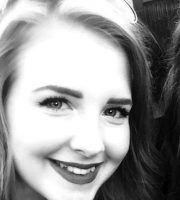
‘There are virtually no conservatives in the field’
American sociology is an “emotive community” whose tendency to create “sacred victims” leads to “ideological blind spots” in sociology research, according to a recent survey of the profession.
“Sociology’s Sacred Victims and the Politics of Knowledge” is not the work of a conservative think tank, however. Of the three authors, one identifies as a “Marxist humanist” and another as a “social democrat.”
In order to test well-known criticisms of the field by both political conservatives and “evolutionary-oriented scholars,” the professors sought to survey nearly 3,500 full-time sociology faculty from institutions identified by U.S. News & World Report as “National Universities” and “National Liberal Arts Colleges.”
They asked sociologists about their views on Muslim immigration to Europe, “urban poverty” within the black community and “gendered differences in occupational choices.”
Among the responses from the 479 “usable” surveys they received back, the researchers found that 62 percent agree with Karl Marx’s dictum that their mission should be to “change the world.”
Even more (73 percent) agree that the pursuit of social justice is “not incompatible with accurate research,” while only 35 percent worry that an “excessively activist orientation” in sociology is undermining the field. Even fewer (30 percent) believe “more political conservatives would benefit” the discipline.
Sociologists’ own research paradigm, gender and political orientation were “significant” predictors of their commitment to the field’s “moral mission.”
The responses validate the reputation of sociology as a “haven for progressive-minded scholars” and give ammunition to critics who claim its biases are interfering with the objective study of “vulnerable” groups of people.
Sociologists Mark Horowitz and Anthony Haynor at Seton Hall University and political scientist Kenneth Kickham at the University of Central Oklahoma wrote that they were “less interested in criticizing our colleagues’ biases than in understanding them.”
One of the authors told The College Fix that the survey was intended to show the “impact of scholars’ political identities on their positions in controversies in their fields and how they interpret the relevant evidence.”
MORE: Sociology professor asks ‘Why we can’t hate men?’
 Horowitz (left), the self-proclaimed “Marxist humanist,” wrote in an email last week: “What we were interested in discovering and explaining in the paper is whether sociologists’ positions on sensitive controversies in their field could be predicted by their political orientations (radical, liberal, and moderate – as there are virtually no conservatives in the field).”
Horowitz (left), the self-proclaimed “Marxist humanist,” wrote in an email last week: “What we were interested in discovering and explaining in the paper is whether sociologists’ positions on sensitive controversies in their field could be predicted by their political orientations (radical, liberal, and moderate – as there are virtually no conservatives in the field).”
Though the paper, published in late June, has received “quite a bit of positive attention already, especially on Twitter,” its aim has also been misinterpreted as criticizing “the ‘groupthink’ of our sociology colleagues,” Horowitz said:
Although we do that to some extent, our main goal is to explain such groupthink or biases by focusing on the underlying emotions (or “moral intuitions”) of sociologists. Yet groups across the spectrum, such as those on the political right, have their own moral intuitions too, leading to their own kinds of biases (think, for example, of the widespread tendency on the right to deny climate change).
Analyzing the research paper, University of Cincinnati criminologist John Wright tweeted that the “political disparity in the field likely allows/encourages extremism and clearly shapes research/teaching.”
Wright, a member of the viewpoint-diversity group Heterodox Academy, did not respond to multiple email queries from The Fix for his broader thoughts on the research. Co-author Kickham declined to comment, saying he was only the “statistician” for the paper, and Haynor did not respond to queries.
‘Political orientation is the strongest predictor of sociologists’ views’
The survey sought to measure the accuracy of criticisms and the potential intellectual “tribe” in sociology, addressing the moral mission, “Advocacy & Objectivity” and “Controversies” within the field. Participants were asked to rate their agreement or disagreement with 31 statements.
The criticisms cited by the authors include the allegedly “biophobic” nature of sociology in its determined efforts to believe humanity to be a “blank slate” in its natural form, as well as the “sacred” values of “social justice and equality.”
They point to the analysis of New York University social psychologist Jonathan Haidt, co-founder of Heterodox Academy, that the sociology field practices the “sacralization” of minorities – “setting them apart as beyond reproach.”
In Haidt’s 2012 book The Righteous Mind, he proposes the Moral Foundations Theory that people have “evolved to form ‘tribal’ moral communities, replete with sacred symbols and rituals that bind them together into cohesive groups.”
MORE: Sociology department website normalizes ‘sexual play’ of children
Under this theory, “sociologists’ sustained attention to the harmful consequences of social stratification expresses precisely their shared moral sentiments to protect vulnerable groups,” the paper reads:
Yet critics contend that in ‘sacralizing’ vulnerable groups, the field undercuts its scientific credibility. … Although our survey hardly serves as a ‘test’ of MFT, the fact that political orientation is the strongest predictor of sociologists’ views is consistent with its expectations.
The Fix sought Haidt’s comment on the paper’s use of his theory, but received an automated email response saying he can no longer respond to most messages.
Don’t blame ‘biology’ for failure of ‘STEM political efforts’
The authors asked sociologists about “black urban poverty” because the 1965 study on the subject, by the future senator Daniel Patrick Moynihan, is still “combustible.”
They sought to determine the efficiency of today’s sociologists in maintaining an objective basis when confronted with the question of a “culture of poverty” versus “structure” in the black urban community:
Do sociologists’ political orientations, gender, or other demographics predict their degree of receptiveness? Moreover, to what extent do these issues touch a “raw nerve,” prompting sociologists to “politicize” our survey questions in emotive or “tribal” ways?
Participants were asked to respond to recent examinations of cultural influences “in perpetuating the black ‘underclass,’” including the role of “hypermasculinity and sexual conquest, extreme individualism and materialism (including contempt for low-wage work), and reverence for the gun.”
Two in three sociologists agreed that “Structural factors profoundly outweigh cultural factors” in the discussion of black poverty; only 12 percent disagreed.
The survey asked participants for their views on “cognitive sex differences” because of the controversy caused by Larry Summers, then-president of Harvard University, when he suggested that women may be underrepresented in science, technology, engineering and math in part because of “innate sex differences.”
They were strongly skeptical that “gendered occupational choice has a sex-related biological component,” with three in four disagreeing that “STEM political efforts may fall short due partly to biology.” A plurality (41 percent) said the search for a “biological component” is “motivated to legitimate [the] status quo.”
MORE: Sociology professor explains how to tell if your university is ‘racist’
https://twitter.com/cjprofman/status/1021524746100453377
The final subject posed to participants was immigration. “Curiously, the sociological literature on immigration offers little over the years on the potentially disruptive effects of mass migration on cultural cohesion,” in contrast to the “considerable attention” given to the “marginalization and institutionalized discrimination” toward immigrants, the authors wrote.
Two-thirds of responding sociologists disagreed that Muslim immigration to Europe “threatens human rights/gender equality,” while a plurality (49 percent) agreed that those who are concerned with “cultural cohesion [are] likely xenophobic.”
Men vs. women and ‘intersectional’ scholars
The authors found “striking patterns” when they asked participants to respond to general statements on the purpose of sociology.
Nearly four in five agree that “Socialization/discrimination profoundly outweigh biology,” with a 13-percentage-point difference between women (87 percent) and men (74 percent).
The gender gap persists across the survey. Women differ “significantly” from men on answering 26 of the 31 questions, and are more likely to “affirm the moral mission” of the field and “significantly less likely to express concern about the impact of advocacy on objectivity.”
Female and “intersectional” sociologists are “almost always” in agreement on the impact of structural versus cultural factors, as well.
Those who voiced “strong adherence” to the view that sociology should be both a “scientific and moral enterprise” were “significantly less likely to reveal concern about excessive activism in the field or that social justice or advocacy may undermine scientific objectivity.”
In its responses to the “controversies,” this subgroup was also more likely to reveal itself as “vulnerable-group-partial,” according to the authors. They were more likely to “affirm the negligibility of cultural factors” in the discussion of black urban poverty, and less likely to acknowledge the role of biology in occupational choice or the potential threat of Muslim migration to “human rights and values.”
Sociologists do not choose their “paradigm” in the same way “a carpenter selects the right tool for a task,” the paper says: The results suggest that their agendas and theories are “bound up with their shared moral sensibilities and reinforced by like-minded colleagues in ‘tribal’ ways.”
If their analysis reflects on the whole of the field, the authors say, then sociology “can be understood as an emotive community where people of left/liberal politics produce, perform and ultimately police their underlying sensibilities.”
MORE: Sociologists say being a ‘victim’ has become badge of honor
MORE: White sociology prof says it’s racist for whites to have mixed-race kids
IMAGE: PPCC Antifa/Flickr
Like The College Fix on Facebook / Follow us on Twitter






Please join the conversation about our stories on Facebook, Twitter, Instagram, Reddit, MeWe, Rumble, Gab, Minds and Gettr.